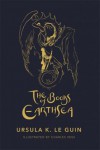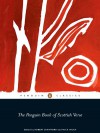Arbie's Unoriginally Titled Book Blog
It's a blog! Mainly of book reviews.
Currently reading
The Violet Keystone

Looking back at this series from some distance (it's months since I read this volume and years since I started the series) it feels very much like an author learning his trade; the contrast in writing quality between first and last volumes is large. Perhaps the best aspect of the series is the imagination on display, which certainly intimates what Nix would prove capable of in later works, particularly the Old Kingdom and Keys to the Kingdom series.
The latter stages are better than some of his stand-alone novels and the first two Trouble-Twisters books. The reason for this is given away in Nix' short story collection. He mentions that he never bothers to work out more detail in his imagined worlds than is necessary for the plot. Hence the more wide-ranging and longer the series, the more fully realised the world becomes - and this shows very clearly indeed. The way to convince people an imagined place is real is to make people think there is plenty more to learn that they have not been told. This can only be done if the world does exist in the writers imagination well beyond the bounds of the story in the book. History, language and culture are all required facets. Unfortunately in fantastical fiction writing of any variety, as in so many other trades, the more effort you put in the better the result you get out.










